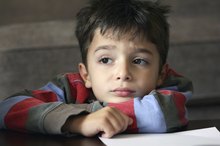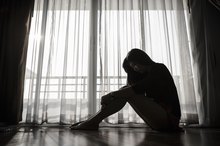The Effects of Violent Literature on Children
Children who observe others perform an aggressive behavior are more likely to exhibit the same aggressive behavior immediately, according to a 2006 study published by Brad J. Bushman and L. Rowell Huesmann in the Archives of Pediatrics & Adolescent Medicine. This response may occur because of high arousal or because intense emotion is attributed to the provocation. Unlike television and movies, books engage the reader as an active participant in the violent storyline because the reader must use his imagination.
Aggression
Exposure to violent media may lead to aggressive behaviors and aggressive thoughts, according to the 2006 Bushman and Huesmann study. In one study, children read very violent comic book stories in which a child causes a negative event to happen to another child but the intent of the harmdoer is unclear. These children recommended more retaliation toward the harmdoer than children who read mildly violent stories, found a 2000 study published by Steven J. Kirsh and Paul V. Olczak in Media Psychology 1.
Anger
How to De-Escalate Aggressive Behavior in the Developmentally Disabled
Learn More
The 2006 Bushman and Huesmann study found that anger and arousal levels also increased in response to violent material. In the 2000 Kirsh and Olczak study, boys who read violent comic books responded with a hostile attributional bias, or negative beliefs about the motives of the harmdoer.
Helping Behavior
Violent media may cause a decrease in subsequent helping behavior, according to the 2006 Bushman and Huesmann study. Violent media may make people numb to the pain and suffering of others, according to a 2009 study published by Brad J. Bushman and Craig A. Anderson in Psychological Science.
Related Articles
References
Writer Bio
Erin Beck began writing professionally in 2008 as an opinion columnist for the West Virginia University student newspaper, "The Daily Athenaeum." She has worked in health promotion at the university and as a communications intern at the National Alliance on Mental Illness. She has a Bachelor of Science in journalism and a Master of Public Health, both from West Virginia University.









